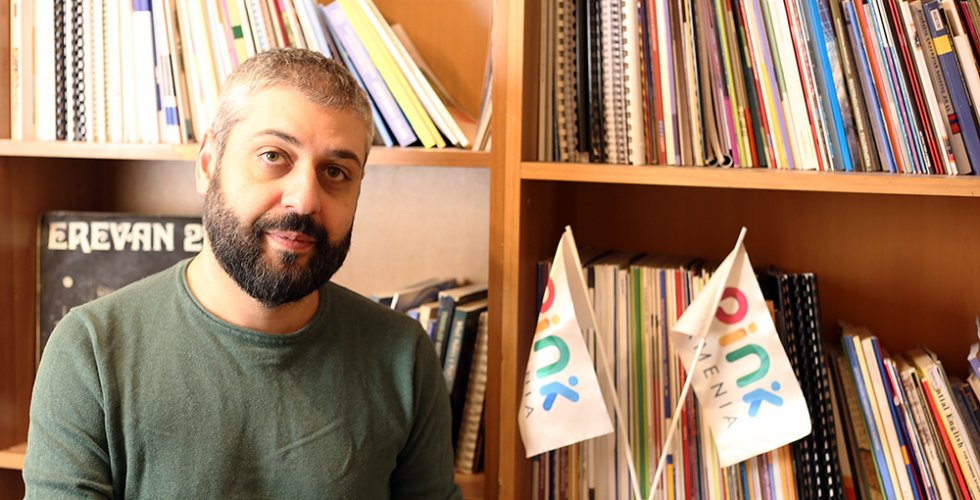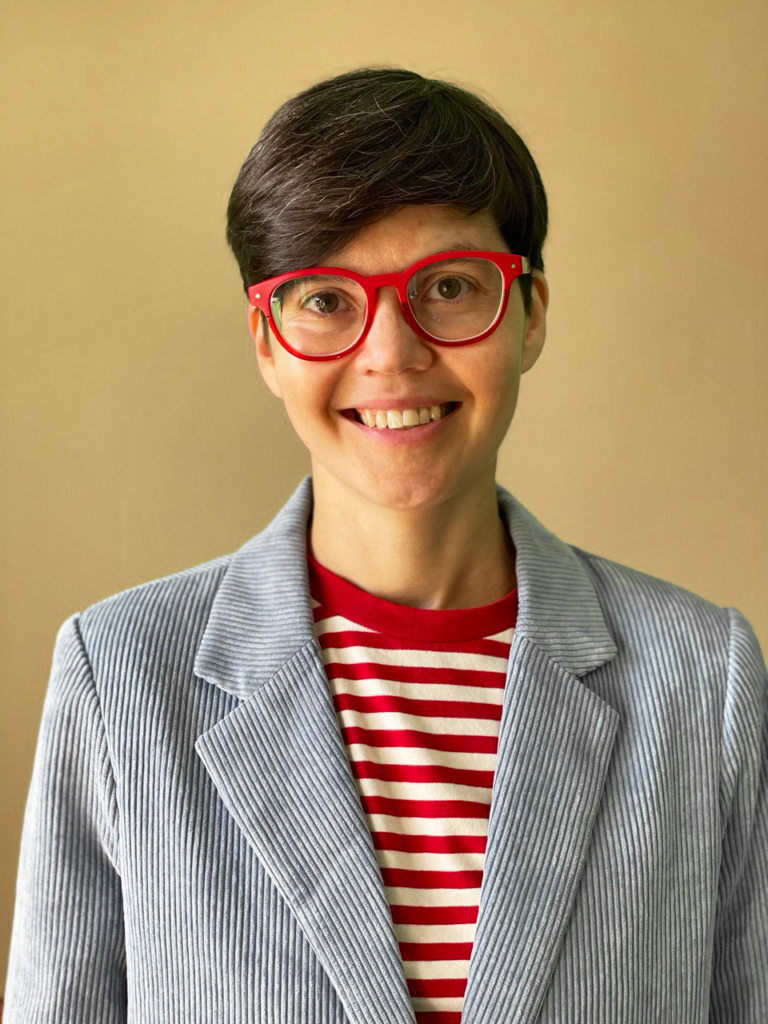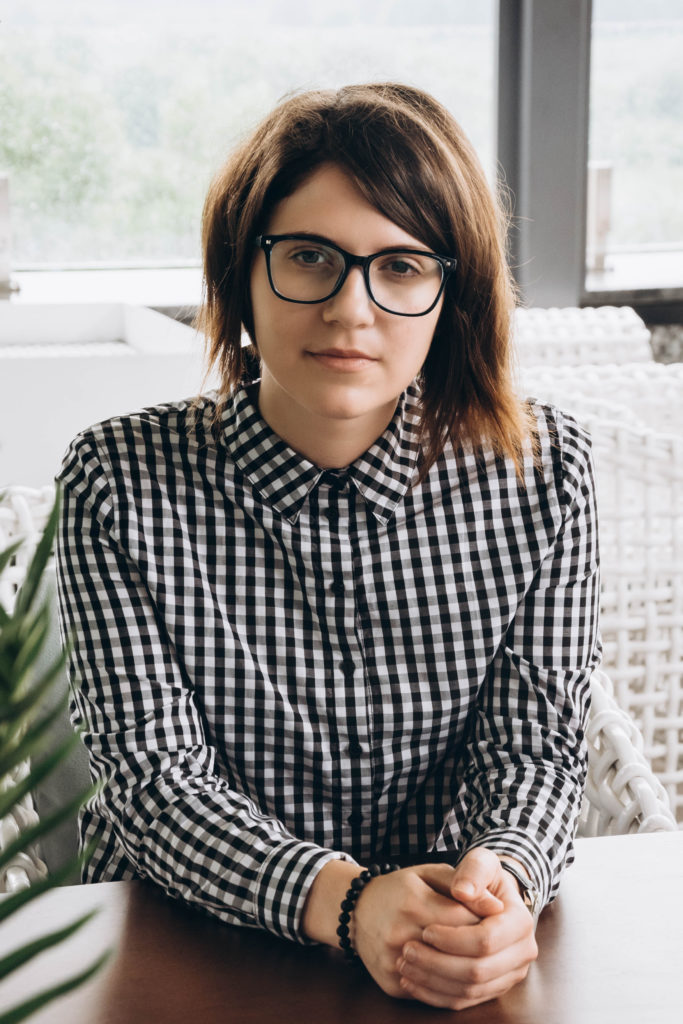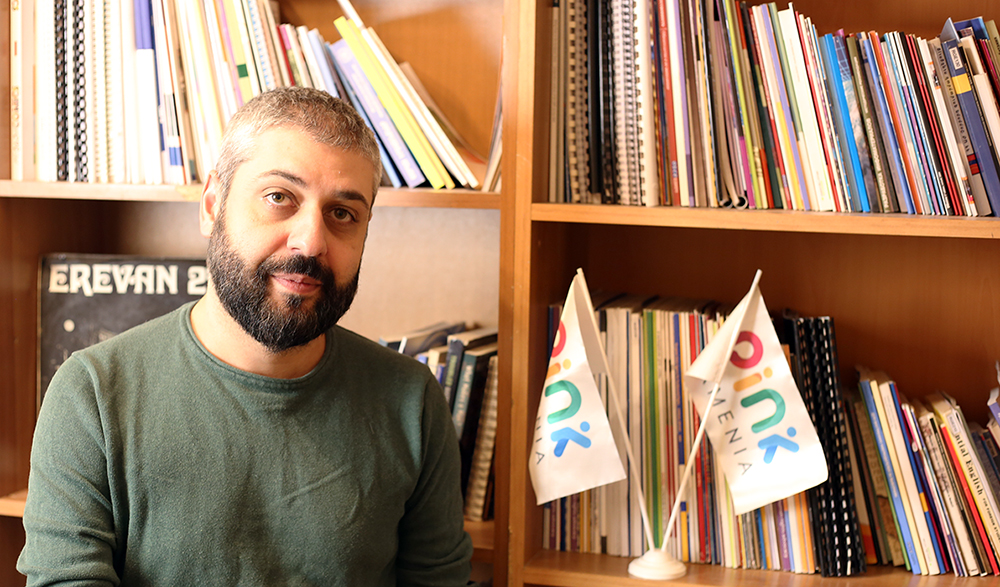
Activist Voices from ILGA Europe’s Online Gathering
This week, ILGA Europe is hosting an online gathering for activists from Eastern Europe and Central Asia. Among the topics that will be discussed is how to look at LGBTQI people’s rights from a conflict perspective.
RFSL will host a seminar on this very topic. We took the opportunity to speak to three of the panellists in the seminar. Meet Anastasia Danilova from Moldova, Uliana Movchan from Ukraine, and Mamikon Hovsepyan from Armenia.
Anastasia Danilova

Anastasia Danilova is the Executive Director of GENDERDOC-M Information Center, located in Chisinau, Moldova, which is the country’s only non-governmental, community-based organisation that promotes the rights of LGBT+ people. The organisation carries out a vast array of activities and interventions – everything from visibility campaigns, legal advocacy, and strategic litigation to the provision of psychosocial services and community mobilisation. GENDERDOC-M also works on supporting the LGBT+ community in the Transnistrian region.
What motivates you in your work?
Despite the fact that there are a lot of rollbacks in our work, any changes that we achieve for one person or for all LGBT people in Moldova is a motivation to me: I am inspired by positive stories of coming out and acceptance by loved ones, a change in the documents of a transgender person, won litigations and the adoption of legislation that includes LGBT people – everything that gives hope that one day the situation of LGBT people in Moldova will change for the better.
Why is it important to speak about LGBTQI rights from a conflict perspective?
Wars and frozen conflicts hit the most vulnerable groups in society particularly hard, which in our countries include LGBT+ people. In such emergencies, human rights often fade into the background, and abuse of power, discrimination, and insecurity goes unchecked. Therefore, I consider it important to talk about how the rights of LGBT + people are violated during wars or in frozen conflicts, how these circumstances hinder working with LGBT+ people and protecting their rights.
Uliana Movchan

Uliana Movchan is a political scientist and human rights expert working at Insight – one of the leading feminist LGBTQI organisations in Ukraine. The organisation has a broad profile in working with advocacy, campaigns, community mobilisation, and service provision. Some of the organisation’s more prominent areas of work include trans rights, assistance to internally displaced LGBTQI people, and community mobilisation in the regions of Ukraine.
What motivates you in your work?
It is important for me to be able to help people and influence social change in my country and on a wider scale. When I think about the individual stories of people for whom I and my colleagues have managed to do something, I feel motivated and gain strength for further work.
Why is it important to speak about LGBTQI rights from a conflict perspective?
While many countries discuss inclusion or special programs for LGBTQI people, in other countries LGBTQI people live in war, in dilapidated homes, or are persecuted. It saddens me that the global community says very little about countries suffering from war for many years. Who should talk about this if not us?
Mamikon Hovsepyan

Mamikon Hovsepyan is the founder, former director, and currently a fundraising and communications officer at PINK – a leading LGBT+ organisation in Armenia. The organisation provides relevant services to members of the LGBT+ community in Armenia, works on lobbying, advocacy, and campaigning, among other things. During the recent war in Nagorno-Karabakh, PINK provided psycho-social support to members of the LGBT+ community, directly or indirectly affected by the conflict. PINK’s staff was also involved in large-scale volunteering aimed at mitigating the impact of the war on society.
What motivates you in your work?
It is not easy to defend human rights in Armenia, especially when it comes to LGBT+ people. But I chose to be part of the movement and have contributed to some changes. While I was a teenager and growing up in a smaller town as a gay person, there was nobody around to understand and support me. Now, I can be that person who supports others who feel lonely and stands by them when it is needed, to make their voices heard when they can’t.
Why is it important to speak about LGBTQI rights from a conflict perspective?
Everybody deserves to live in peace and freedom. Unfortunately, queer people are more vulnerable when the country is at war. In the rhetoric of militarization, LGBT+ people become targets of aggression and violence. Society tries to find other “enemies” and the queer community is being increasingly targeted. On the other hand, part of the community also follows a nationalistic discourse and replicates the ideology of aggressive groups.
War kills both sides, not only physically but also emotionally and mentally, and people do not recover for a long time. In such an environment it is more difficult to work with the human rights issues of LGBT+ people and all the work and progress that we have made is undone.
